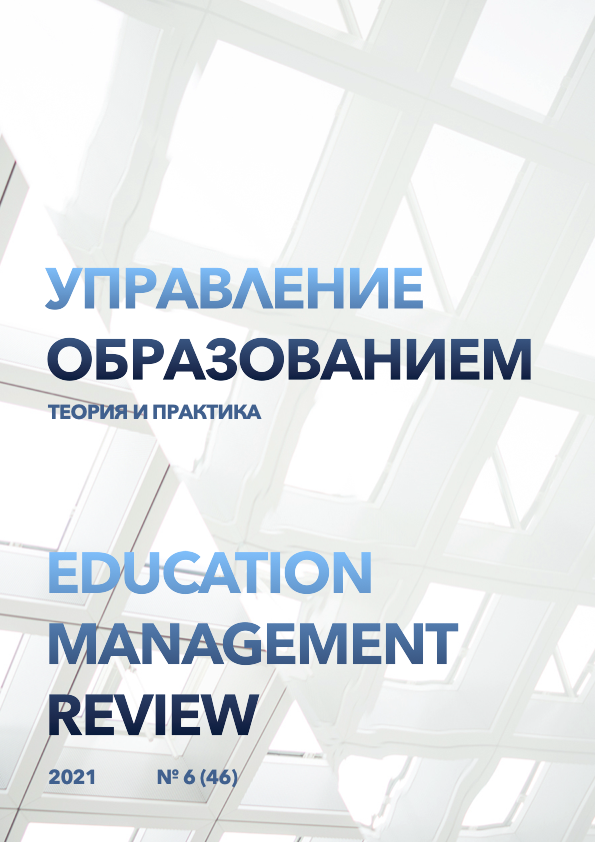Formation of managerial competence in teaching technological aspects of financial literacy
DOI:
https://doi.org/10.25726/e3532-4985-1922-zKeywords:
Financial literacy, training, structure, development, formationAbstract
The development of entrepreneurial competence among students is defined by US teachers as the most important result of the activities of schools today, besides, on December 18, 2006, as a result of a long discussion by representatives of educational institutions of the European Union states, an important document was adopted – Recommendations of the European Parliament and the Council of Europe "Key competencies for lifelong learning (European Guidelines)". The European Parliament has identified eight key competencies, including entrepreneurial competence. In order to further use the concepts of "entrepreneur" and "entrepreneurship", we will consider their essence. It should be emphasized that the definition is chosen in such a way as to illustrate the direct connection of entrepreneurship with the acquisition of competence. The Consortium for Entrepreneurial Education claims that entrepreneurship does not only teach schoolchildren how to run a business. It is also about encouraging creative thinking and promoting the development of a strong sense of self-worth, empowerment through entrepreneurship training; students learn how to create a business, but, in addition, they also learn how to recognize opportunities in life, realize them, find the necessary resources by generating new ideas, create and operate their own entrepreneurship. So, in addition to knowledge and skills in the field of business, entrepreneurial education mainly develops beliefs, values and attitudes in order for schoolchildren to study entrepreneurship as an alternative to unemployment.
References
Chhatwani, M. (2022). Income satisfaction among Millennials during COVID-19: the interplay among cognitive, noncognitive and financial factors. International Journal of Social Economics. https://doi.org/10.1108/IJSE-03-2021-0183
Chin, J. M.-C., Ching, G. S., Del Castillo, F., Wen, T.-H., Huang, Y.-C., Del Castillo, C. D., … Trajera, S. M. (2022). Perspectives on the Barriers to and Needs of Teachers’ Professional Development in the Philippines during COVID-19. Sustainability (Switzerland), 14(1). https://doi.org/10.3390/su14010470
Chiu, I. H.-Y. (2021). More paternalism in the regulation of consumer financial investments? Private sector duties and public goods analysis. Legal Studies, 41(4), 657–675. https://doi.org/10.1017/lst.2021.29
Daud, I., Nurjannah, D., Mohyi, A., Ambarwati, T., Cahyono, Y., Haryoko, A.-D. E., … Jihadi, M. (2022). The effect of digital marketing, digital finance and digital payment on finance performance of indonesian smes. International Journal of Data and Network Science, 6(1), 37–44. https://doi.org/10.5267/J.IJDNS.2021.10.006
Foster, B., Sukono, & Johansyah, M. D. (2022). Analysis of the effect of financial literacy, practicality and consumer lifestyle on the use of chip-based electronic money using sem. Sustainability (Switzerland), 14(1). https://doi.org/10.3390/su14010032
Geraldes, H. S. A., Gama, A. P. M., & Augusto, M. (2022). Reaching Financial Inclusion: Necessary and Sufficient Conditions. Social Indicators Research. https://doi.org/10.1007/s11205-021-02850-0
Howard, C. M., & Miller, S. (2022). Pay-for-Performance Reform Programs: It’s More Than the Money! Urban Education, 57(1), 83–107. https://doi.org/10.1177/0042085918801436
Kim, J. Y., & Han, C.-K. (2022). Asset Effects on the Life Satisfaction of Workers with Disabilities in Korea: The Mediating Effects of Self-Esteem and Job Satisfaction. Journal of Social Service Research, 48(1), 98–107. https://doi.org/10.1080/01488376.2021.1955084
López-Medina, T., Mendoza-ávila, I., Contreras-Barraza, N., Salazar-Sepúlveda, G., & Vega- Muñoz, A. (2022). Bibliometric mapping of research trends on financial behavior for sustainability. Sustainability (Switzerland), 14(1). https://doi.org/10.3390/su14010117
Mavlutova, I., Fomins, A., Spilbergs, A., Atstaja, D., & Brizga, J. (2022). Opportunities to increase financial well-being by investing in environmental, social and governance with respect to improving financial literacy under covid-19: The case of Latvia. Sustainability (Switzerland), 14(1). https://doi.org/10.3390/su14010339
Mohd Padil, H., Kasim, E. S., Muda, S., Ismail, N., & Md Zin, N. (2022). Financial literacy and awareness of investment scams among university students. Journal of Financial Crime, 29(1), 355–367. https://doi.org/10.1108/JFC-01-2021-0012
Potnis, D., & Gala, B. (2022). “Unified Mobile, Financial, and Information Literacy Toolkit”: A Social Innovation for Public Libraries to Alleviate Poverty in Developing Countries. Library Quarterly, 92(1), 68– 86. https://doi.org/10.1086/717230
Türkmen, A., & Kılıç, Y. (2022). What matters for pension planning in Turkey: financial literacy or perceived consumer risks? International Journal of Social Economics, 49(1), 138–151. https://doi.org/10.1108/IJSE-03-2021-0140
Vučetić, M., Brokešová, Z., Hudec, M., & Pastoráková, E. (2022). Financial literacy and psychological disaster preparedness: applicability of approach based on fuzzy functional dependencies. Information Processing and Management, 59(2). https://doi.org/10.1016/j.ipm.2021.102848
Yin Yin, K., Yusof, R., & Abe, Y. (2022). Integrating financial literacy into economics courses through digital tools: the Finlite app. Journal of International Education in Business. https://doi.org/10.1108/JIEB-06-2021-0068




